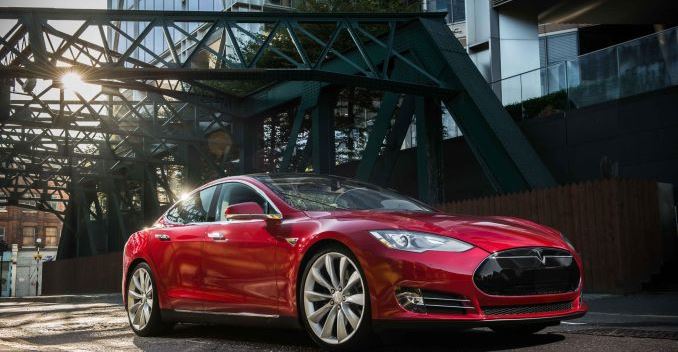Tesla Recalls 1.23 Lakh Units Of Model S Sedan Over Faulty Steering Bolts

Highlights
- This is the third recall from Tesla involving Model S
- This is Tesla's largest ever recall
- The units recalled were manufactured before April 2016
Tesla has issued a recall for 1.23 lakh units of the Model S sedan for having faulty steering bolts. The Model S units recalled have been manufactured before April 2016. Tesla says that the steering bolts are showing excessive corrosion in some cold climate areas where a particular type of road salt is used. Road salts are basically used to thaw out the ice on the roads, thereby reducing the danger of wheel slipping and lack of traction. Should these steering bolts fail, the car could become very difficult to handle and could cause an accident. Also, the steering effort at low speeds is increased as well.
 (The Model S has already has two recalls over faulty seat-belts and parking brake)
(The Model S has already has two recalls over faulty seat-belts and parking brake)So far Tesla hasn't reported any incidents yet, but the company would like to replace the bolts free of cost and in time. The company will notify the owners and the replacement of the bolts should take less than an hour. The owners of the affected Model S cars need not stop driving their cars in case they haven't seen any symptoms of affected steering bolts.
This is the largest ever Tesla recall! Before this, it was in 2015 when Tesla recalled 90,000 units of the Model S over a faulty seat-belt. In 2017, the company recalled over 53,000 units combined of the Model S and the Model X SUV over a parking brake fault. Tesla is currently battling problems over increasing the production of the Model 3 which will get in revenues for the company. Also, the US National Transportation Safety Board is investigating a Model X crash that happened in California, where the driver lost his life. The NTSB is trying to ascertain whether the auto-pilot technology was at fault for the crash or not. Needless to say, the timing of the recall could not have been worse.
Related Articles
Latest News
- Home
- News
- Electric Mobility
- Tesla Recalls 1.23 Lakh Units Of Model S Sedan Over Faulty Steering Bolts













